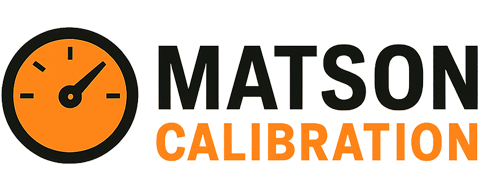No products in the cart.

In industries where precision and accuracy are non-negotiable, dimensional measurement plays a central role. From automotive manufacturing and aerospace engineering to pharmaceuticals and research laboratories, dimensional measurement ensures that components meet specifications, function properly, and comply with international standards.
However, even with advanced tools such as digital calipers, micrometers, and coordinate measuring machines (CMMs), errors can easily occur if best practices are not followed. Mistakes in dimensional measurement can lead to wasted materials, increased costs, safety issues, and regulatory non-compliance.
This article highlights the most common mistakes to avoid in dimensional measurement and provides guidance on how to improve accuracy with the right tools and procedures.
Why Dimensional Measurement Matters
Dimensional measurement ensures that manufactured components fit together correctly, function as intended, and meet quality control standards. Without proper measurement practices, organizations risk:
-
Production delays due to rework.
-
Quality control failures and product recalls.
-
Increased costs and material waste.
-
Non-compliance with ISO and industry-specific regulations.
👉 Explore our wide range of Precision Measurement Tools designed for industrial quality control and calibration.
Common Mistakes in Dimensional Measurement and How to Avoid Them
1. Using the Wrong Instrument for the Application
Not all tools are suitable for every measurement. For instance, using a caliper instead of a micrometer for ultra-precise measurements may result in inaccuracies. Similarly, complex parts may require a CMM rather than manual instruments.
👉 Browse our Calipers & Micrometers to find the right tool for your application.
2. Ignoring Calibration and Traceability
Even the most advanced instruments lose accuracy over time. Using uncalibrated tools can compromise product quality and compliance. Always ensure instruments are regularly calibrated and traceable to ISO/IEC 17025 standards.
👉 See our catalog of Calibration Instruments to support long-term measurement reliability.
3. Incorrect Handling of Instruments
Applying too much force with a caliper or micrometer, or failing to properly zero the instrument before measurement, can introduce significant errors. Tools should always be handled gently and consistently to prevent wear or drift.
4. Environmental Factors Overlooked
Temperature, humidity, and vibration can drastically affect measurements. For example, a part measured at elevated temperatures may expand, leading to incorrect readings. Industrial environments should use climate-controlled rooms or compensate for environmental conditions.
5. Not Following Standardized Procedures
Improvising measurement techniques or skipping reference checks leads to inconsistency. Always follow ISO, ASME, or industry-specific standards when measuring critical dimensions. Documentation of measurement procedures is also essential for audits.
6. Neglecting Tool Maintenance and Storage
Precision instruments require proper cleaning, lubrication, and storage. Allowing dust, dirt, or moisture to accumulate on measurement surfaces will compromise accuracy and shorten the lifespan of the tool.
7. Relying Solely on One Measurement
Taking only a single measurement increases the risk of error. Always measure multiple points, especially on complex geometries, to confirm consistency and accuracy.
Best Practices for Reliable Dimensional Measurement
-
Use the correct instrument for the job.
-
Maintain a regular calibration schedule.
-
Control environmental conditions where measurements are taken.
-
Train staff in proper measurement handling and techniques.
-
Store and maintain instruments according to manufacturer guidelines.
Final Thoughts
Dimensional measurement mistakes can be costly, but they are entirely avoidable with the right combination of proper instruments, trained personnel, and standardized procedures. By avoiding these common errors, industries can safeguard quality, reduce waste, and maintain compliance with international standards.
At Matson Calibration, we offer a complete range of Precision Measurement Tools, from digital calipers and micrometers to advanced calibration systems, ensuring you have the right equipment for every measurement challenge.
👉 Visit our catalog of Calipers & Micrometers today and equip your team with the tools needed to achieve precision in every process.
